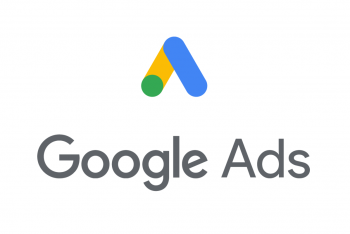Prepare your content to be cited and ranked by AI agents, copilots, and answer engines with Generative Engine Optimisation.
Key Takeaways
- GEO (Generative Engine Optimisation) prepares your content to be cited by AI agents, copilots, and answer engines.
- AI search is shifting user behaviour.
- Consistency, structure, FAQs, mentions, and structured data are the biggest factors for AI visibility.
- Google still dominates search volume, but AI Overviews and copilots are rapidly gaining traction.
- Future-proof your organisation by adopting GEO strategies now, not later.
What is GEO and Why Does It Matter
Generative engine optimisation (GEO) is the process of optimising your content to be cited and mentioned in AI Overviews, AI-powered search engines like Comet, AI mode on Google, ChatGPT(external link), Perplexity, Claude, Gemini, Microsoft Copilot(external link), and other agents, and copilots. GEO also helps businesses and organisations be visible in this new era of "answer engine", also known as AEO or Answer Engine Optimisation.
There are many differing opinions on GEO and its effect on SEO. Some people say GEO is a breakthrough in SEO, some say SEO is dead and AI (GEO) will take over, while others say GEO is improving SEO and is its sub-stack. In any case, understanding GEO and how it applies to your content will put you in the best position to get cited by AI Agents and Copilots.

Is it AI SEO or GEO?
Some people call it AI SEO or AIO since it's optimisation for AI-driven search. Others call it GEO or generative engine optimisation, which covers generative engines and answer engines. AI SEO (AI SEO optimisation) and GEO are often used interchangeably. However, in practice, both of them point to the same concept of preparing your content so AI agents, copilots, and AI-powered search platforms can understand, cite, and recommend it.
How AI is Transforming Traditional SEO
Since the introduction of AI agents, there has been a shift in how users interact with the internet. People now search for information, discover products, read reviews, find and even create travel itineraries through AI copilots rather than just Google search.
This shift has caused website owners to notice a decline in click-through rates and traffic, largely due to AI Overviews and AI-powered agents. For example, Google's AI Overview was first introduced in New Zealand in late 2024.

Key Factors That Influence AI Search Visibility
Some of the key factors that have an impact on search visibility are:
Content Consistency
If your website says your business or organisation was “founded in 1995” and your Facebook page says “founded in 1997”, then it will affect your authority and trustworthiness. The same applies to NAP or Name, Address, and Phone number. These simple metrics and their consistency have become more important than before. Consistency is more important than ever. In addition to this, rest of your content should be consistent to your other platforms.
Content Structure
A well-structured page on your website is important for AI-driven searches as well as your readers. AI agents and copilots like clean content structure to deliver user intent-driven results.
A few things to keep in mind for your page or article:
- Add summaries, or TLDRs at the top of the page
- Break up your content in relevant paragraph
- Use descriptive headings and subheadings
- Use lists wherever necessary
- Avoid keyword stuffing at all cost, otherwise your page or article will be penalised.
Frequently Asked Questions
Since GEO and AEO prefer question-answer-based search formats, FAQs are now crucial. Add relevant FAQs to important pages on your website and cover popular questions people might be searching for.
Citations and Mentions
AI agents crawl not only websites but also communities like Reddit(external link), Quora(external link), and Tripadvisor(external link). Getting mentioned in relevant communities increases your chances of being recommended by AI agents.

Structured Data
Structured data like Schema markup(external link) helps AI agents and crawlers understand your website content better. For example, if your website has reviews on it, then Google or AI agents can’t read and show them in their rich results unless Schema markup is present on your website.
Adding LLMS.txt file
An LLMS.txt file works similarly to a Robots.txt file. AI agents, crawlers and bots can read this file and push your content where they deem necessary. Having a well laid out LLMS.txt file will help your website and its content more reachable and readable for AI-driven searches.
There is a big debate about using and implementing the LLMS.txt file. Google’s Gary Illyes(external link) recently said that Google won’t be crawling or using the new LLMS.txt files that have become a popular topic in the SEO space. Contrary to this, OpenAI's crawlers have been seen crawling websites, which makes it clear that despite Google choosing not to crawl LLMS.txt files, AI agents and crawlers are crawling them.
With our experts, you can build a strong foundation for AI-era visibility. Our team will develop strong generative engine optimisation (GEO) strategies to deliver user intent-driven results. Our team can also optimise your content for AI agents and copilots and future-proof your brand for the shift from search engines to answer engines.
We have been implementing GEO strategies for our clients, and if you want to stay ahead in the AI SEO and GEO game, fill out the form below, and one of our experts will be in touch.




